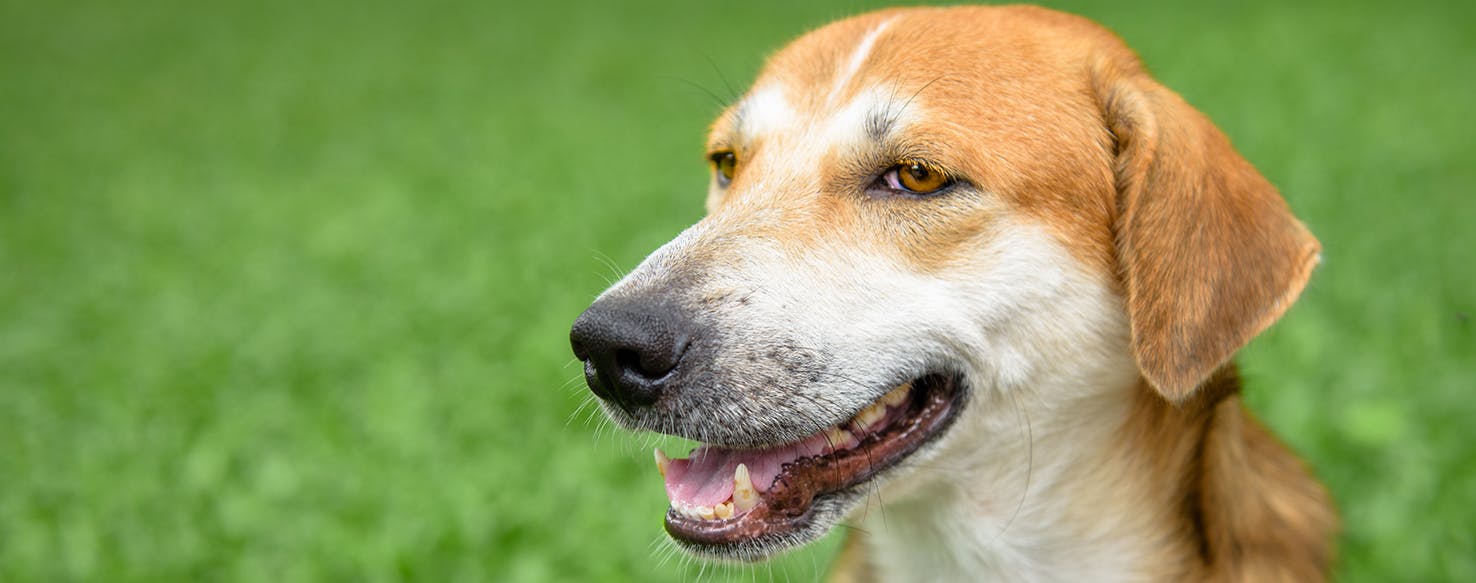
Save on pet insurance for your pet
You don't have to choose between your pet and your wallet when it comes to expensive vet visits. Prepare ahead of time for unexpected vet bills by finding the pawfect pet insurance.
- Lemon: Acidic citrus fruits, like lemon, have a natural antibacterial action. This helps reduce bacteria in the mouth, which in turn reduces plaque formation and bad breath. Try adding a squeeze of lemon juice to your dog's water bowl, to give their breath a boost.
-
Parsley: The chlorophyll in parsley has an odor-neutralizing effect. If your pooch won't chew on parsley, try adding some freshly chopped parsley to their food. Alternatively, steep a bunch of parsley in half a liter of water, and then use this as a spritz spray mouthwash.
-
Apple cider vinegar: Add 1/2 teaspoon apple cider vinegar to your dog's bowl as a way to stave off bad breath.
- Meat-rich diets: Look for a food with meat, fish, or chicken as the main ingredient. Also, steer clear of foods high in soy. Soy ferments in the gut with windy after effects!
-
Coconut oil: Anecdotally, pet parents find that adding a teaspoon of coconut oil to their dog's food aids digestion and reduces bad breath. However, be aware that coconut oil is heavy in calories, so if your pet struggles with their weight, this might not be for them.
- Brown rice: The fiber and antioxidants in brown rice make for a healthier digestive tract and fewer bad smells at either end!
- Carrots: The beta carotene in carrots has great antioxidant properties that reduce the damage done by free radicals and inflammation. Also, chewing on carrot sticks between meals encourages salivation, which helps wash away food debris and makes the mouth a cleaner place. Cucumber slices and celery sticks in small quantities may do the trick, too.
- Apples: To reach the back teeth and remove tartar build-up, provide apple slices. Crunching on this tasty snack can serve as a cleanser in between teeth brushing sessions. Make sure the seeds are removed before giving the slices to your pup.
- Tooth brushing: There's no substitute for daily tooth brushing as a way to keep teeth clean. Use a pet toothbrush or soft child's toothbrush. Dampen the brush with water, since elbow grease alone has a cleaning effect. Alternatively, use a pet toothpaste (never use human toothpaste) and add a little coriander for extra fresh breath.
-
Chews: Give your dog natural chews to give those chompers a daily workout and rub away food debris.
- Probiotics: Probitotics enable healthy bacteria to thrive in the mouth, outnumbering bad bacteria.

